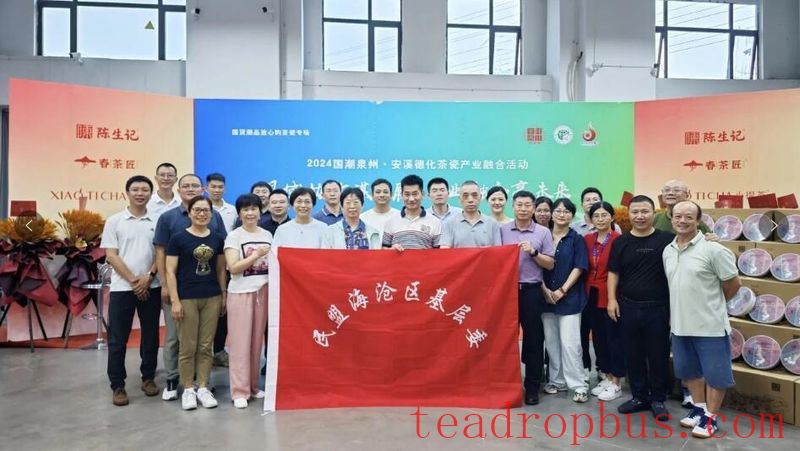From August 10 to 11, Deputy Chairpersons Liao Yicong, Lin Zhenming, Guan Wejuan, and Peng Jianwen of the Minmeng Haicang District Sub-Committee organized more than 30 members to visit the Tea country of Anxi, Quanzhou, for an in-depth research trip focused on the integrated development of the “three teas” (Tea culture, tea industry, and tea technology). The group visited locations such as the Anxi Guanqiao E-commerce Live Streaming Park, the Lutian Yunling Tea Culture Base, and the Longmen Bama Tea Industry's main factory park. Deputy Chairpersons Chen Ximei and Wu Jinshi of the Minmeng Municipal Committee, Minmeng Standing Committee Member and Haicang District People's Congress Vice-Chairperson Guo Rufen participated in the research. Zhou Shenghu, the Deputy Permanent Secretary of the CPC Haicang District Committee's United Front Work Department, and Peng Wenbin, Director of the Haicang Street People's Congress Working Committee, were also invited to attend.

In recent years, Anxi County has thoroughly implemented the overall requirements of rural revitalization and digital China strategies, taking industrial digitalization and digital industrialization as its main development thread. It has actively explored the deep integration of e-commerce with traditional industries. At the tea industry e-commerce live streaming park, the research team gained a deep understanding of the overall construction of the base and the situation where the “internet celebrity live streaming sales” model promotes Anxi's “live streaming economy,” assisting in rural revitalization.
As the renowned “Chinese Tea Capital” abroad, Anxi boasts many well-known tea brands. At the Lutian Yunling Tea Culture Base, the research team delved into the tea mountain base to investigate and study the local modern agriculture that combines tea picking, homestays, and educational tours based on local conditions. To gain a deeper understanding of the brand story, the research team visited the Bama Tea Industry's main factory to learn about the company's history and personally experience the tea-making process.
The two days of field research broadened everyone's horizons and opened their minds to learn from Anxi's excellent experiences. Moving forward, the Minmeng Haicang District Sub-Committee will take this research as an opportunity to leverage the advantages of intellectuals' concentration and extensive connections within the democratic party, actively provide advice and suggestions, and promote the coordinated development of tea culture, tea technology, and the tea industry. This will help explore new models for the integrated development of tea culture across both sides of the Taiwan Strait, contributing Minmeng's strength to the comprehensive advancement of rural revitalization.